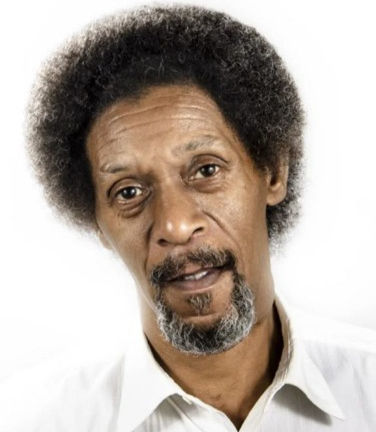Rochester’s Academic Crisis: Why Media Narratives Miss the Bigger Picture
- Howard Eagle

- Dec 31, 2024
- 4 min read
Updated: Jan 1

Rochester parents and residents should urgently focus on the persistent and alarming academic crisis within the Rochester City School District. This issue, which has deep roots, is often downplayed by mainstream media through reductionist reporting. For example, recent headlines like "RCSD science scores lag behind state average, teachers voice concerns" oversimplify the problem. Predictably, the data reveals that RCSD science scores not only fall far below state averages but also that English Language Arts and Math scores are similarly abysmal—and in some cases, worse. The report's focus on 5th-grade science proficiency ignores even lower 8th-grade results, further highlighting the selective narrative. This raises an important question: why single out science when the systemic failure is so broad? While exploring potential answers, it’s critical to examine other key aspects of this entrenched crisis.
In my humble, but staunch and informed view, the entrenched academic crisis in the RCSD demands urgent and honest accountability, not rationalizations or excuses. For example, comments from teachers in the cited article fall short of providing clear explanations. One teacher claimed the test focused on reading comprehension rather than science content, while another suggested it tested understanding of the question format, not its content. These claims seem implausible—are we to believe the State developed a reading test unrelated to science? Instead of offering such reasoning, teachers should focus on the core issue: why RCSD students performed significantly worse than the already-low state average.
The achievement gaps across Monroe County are glaring. Superficial explanations cannot account for such disparities. Real progress requires identifying deeper systemic factors and building a serious movement for change. This involves all stakeholders—educators, administrators, parents, students, and community members—working collaboratively toward measurable goals. Addressing systemic issues like standardized testing is critical, as it often forces teachers to "teach to the test," sidelining foundational skill-building in reading, writing, and math. Without these skills, students are ill-equipped to succeed.
We must reclaim local control from rigid state and federal mandates and give educators the freedom to focus on laying a strong academic foundation. Eliminating standardized testing may be an option, provided we develop effective alternative assessment methods. Achieving these goals requires a unified, determined movement, grounded in a shared commitment to meaningful, lasting improvement.
A survey of RCSD parents conducted via Facebook asked: "Parents, we want to hear from you. Send us an email at news1@whec.com or leave a comment below about what you think of these numbers." Many educators expressed resentment, feeling the media was pitting parents against them and blaming them solely for this ongoing crisis. In my view, such reactions were somewhat narrow-minded. Educators could have used this opportunity to teach about the complexities of the crisis rather than criticizing parents.
While I appreciated the post for sparking important dialogue, several questions remain:
Why focus exclusively on the RCSD when this crisis affects all large urban districts in New York?
Why survey only about Science, when ELA and Math scores are equally poor?
What will they do with the information collected?
Some suggest the survey aims to boost ratings. Let’s hope not—if that's not the case, what’s the purpose?
I don’t want to sound like a conspiracy theorist, but I can’t help wondering—why did an article in Science Magazine parroting the media’s narrow perspective on this "new" revelation appear on the same day (12/22/24) that local media reported it? The article, titled Shocking Test Results Revealed! Are Students Set Up for Failure?, concluded with: “With increasing attention on these issues, educators, policymakers, and parents must work collaboratively to ensure students thrive in an increasingly complex world.”
What "increasing attention"? This article promotes the false idea that the new science test "reveals" something we haven’t known for decades: no matter the test format over the last 50 years (e.g., New York State’s old Regents Competency Tests), massive failure persists. My suspicions grew when another article appeared in Science Magazine two days later, titled Future of Education at Risk? How Technology May Rescue Low Science Scores in RCSD.
Again, I asked: WHAT?! We cannot rely on technology gimmicks to fix foundational issues. There’s no substitute for ensuring students master core literacy and numeracy skills—reading, writing, and math at or above grade level. These foundational skills are the bedrock of higher-order thinking, and we must focus on them with laser-like precision from the start of K–12 education.
This issue is especially critical for many of our poorest children, who enter the system already behind their peers. We cannot let anyone sell us more “snake oil,” like claims that technology will rescue RCSD’s low science scores. The community must remain vigilant and prevent the Rochester Board of Education from being hoodwinked into wasting more resources on ineffective solutions.
~
Howard Eagle is a longtime educator and local anti-racism advocate, known for his campaigns for the Rochester school board and prolific political and social commentary. Eagle taught social studies in the RCSD for 23 years, before retiring in 2010, and was an adjunct professor in the Department of African American Studies at SUNY Brockport for 19 years before retiring in 2020.
References:



















You CLAIM to care about the academic crisis in the Rochester City School District, but your history as a teacher tells a different story. You prioritized making a point over serving your students. Who were you trying to prove something to? The administration? The system? Yourself?
While you criticize educators, administrators, and policies from a distance, your own actions contributed to the very failures you now claim to be so passionate about fixing.
Accountability isn't just for teachers and administrators it's for everyone who plays a role in this system, including you. You HAD an opportunity to lead by example, inspire change from within, but instead, you chose to make your classroom a stage for your frustrations and mess up…